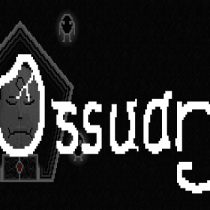Baldur’s Gate: Enhanced Edition has been out for over a month now. Despite having issues with getting the game on the Apple App Store and further teething problems for Android preventing the multi-platform extravaganza that Overhaul Games / Beamdog were perhaps hoping for, the PC version has enjoyed a fair measure of success. Most critic reviews of the game were positive, according to review aggregator Metacritic, but the user reviews have not been as kind. A lot of criticism seems to stem from a sense of unfulfilled nostalgia; that the game isn’t as good as they remember it and it’s all Overhaul’s fault. This is the risk that the developers took when re-making such a well-loved game, of course, but nostalgia can be overpowering; when you take a step back and look at things from a wider perspective, BG:EE is no less a masterpiece now than the original all those years ago.

As mentioned in my previous articles on the title, BG:EE is essentially a re-mastered re-release of the BioWare classic. Most notable among the improvements made to the title were the out-of-the-box (so to speak) compatibility with newer versions of Windows, support for much higher, widescreen resolutions (as opposed to the original 640×480 or 800×600) and a host of bug fixes that were never officially addressed. On the first two accounts, the developers have delivered and then some; the game looks better than it ever did. Though community-led efforts to mod the original title have been around for several years, none match the level of professional polish that BG:EE achieves, with high-res textures and improved UI design. However, in fixing the purported 400+ bugs that the original was riddled with, they unintentionally introduced some brand new ones.
This is where nostalgia becomes a force for evil, for lack of a better term. While we often look back at our favourite games from years ago with fond memories, it can sometimes be the case that our view is rose-tinted. Was that game we loved so fondly really an unrivalled masterpiece of gaming, unbeaten to this day in the field of gaming pedigree? Would it hold its own against today’s offering of titles in the same genre? All too often, the answer would be no; except in certain special cases, there aren’t too many games from 10 or 15 years ago that could reasonably hope to match up to their current-gen competition. The community efforts to mod and patch the original were, in effect, a series of stop-gap measures to stave off the inescapable eventuality of the game ageing beyond a point where it can retain the excellence of yesteryear.
It becomes all the more poignant when someone comes along and re-releases the title, because nostalgia then becomes a driving factor. Everyone expects to feel the same sort of amazement as they did when they played the original for the first time. Their hopes are dashed when the title is released and it doesn’t compare to their memories of summers sat in front of a beige CRT, playing what was a landmark in gaming history at the time, but is now more of a celebration of that heritage. Nostalgia, in this case, has probably done more harm than good for BG:EE, with the majority of negative reviews being centred on newly introduced bugs, or criticism over replacement cut-scenes. Anything that has changed, it would seem, is fair game for angry dismissal.

But BG:EE is undeserving of such censure. Overhaul Games could never have hoped to revolutionise the RPG genre as the original once did, nor could they dream of releasing a game that was one hundred percent flawless. Of course there are going to be bugs; I challenge anyone to show me a newly released game without any. What BG:EE achieves isn’t intended to be anything close to the scale of the original – it does what it says on the tin: enhances it.
For this reason, any review of the meat and potatoes of the game I could write would simply be a re-print of one from circa 1998, when the game was originally released. In essence, the game remains the same at its core, with the majority of the storyline and overall gameplay unchanged. Overhaul have added some personal tweaks of their own – including the integration of the much-improved Baldur’s Gate 2 combat engine – and added some individual flair in the form of new characters and optional storyline elements. They have even gone to the length of adding an arena-style encounter, separate from the main game, in the form of the Black Pits. The important factor among all of this is that nothing has been taken away from the Baldur’s Gate experience; only added to.
Putting nostalgia to the side, the game is still showing its age. Nothing short of a complete re-make would be able to resolve some of the game’s legacy quirks. The character animations, for one, are still a relic of a time where games looked like constantly looping .gif images. Pathing is also a mite flaky, with your party often needing to be taken across the map in stages, lest they be unable to find their way around a wall or a building on their own. When one has become accustomed to the improvements that have been made in the intervening years, the feeling of absence when simple things like “sparkling” loot-filled corpses aren’t present is testament to how far we’ve come since this game’s heyday.
The difference, then, is that we now have to look past an ageing gameplay and interface system – however enhanced – to get to what made us fall in love with the game in the first place. Having played a good number of hours myself, I can attest to the fact that after a while, the awkwardness fades. The old skills come back, you get your sea legs and you’re back in front of your beige CRT again with nary a thought for modern gaming. BG:EE captures everything that the original Baldur’s Gate once was – and everything it could have been – and bundles it all up in a presentable package. Like a restoration of a priceless painting, it may not be photo-realistic, but it is no less beautiful because of this.

Overhaul Games have, if nothing else, brought an absolute paragon of gaming back into the limelight. They have given the modding community a new, vastly improved baseline to work from for future preservation. They have removed the barrier that prevented a new generation of gamers from playing one of the greatest PC games ever, and while some of said new generation may not be as appreciative of its charm as the old guard, it remains preserved for another decade, ready for someone new to fall in love with it.
© 2013 – 2014, zero1gaming.com. All rights reserved. On republishing this article your must provide a link to this original post
About Chris Smith
A twenty-something gamer from the North-East of Scotland. By day, I’m a Computer Technician at a local IT recycling charity, where I fix and build PCs. Outside of that, most of my time is spent either sleeping or gaming, which I try accomplish in equal amounts.
•




